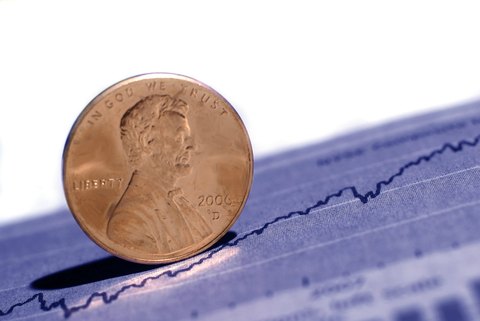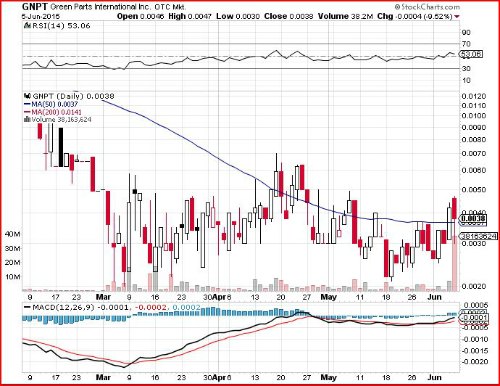What is a Penny Stock?

Asking what is a penny stock will get you different definitions based on who you ask and how big their brokerage account is. But, let's be real, unless the value or definition of a penny has changed, then it can only mean one thing...
Ask what is a penny stock to a multi million or even billion dollar investor and they'll tell you they're small cap stocks trading under $10 a share.
Ask your typical $50k to $250k trader and they'll tell you it's microcap stocks trading for $5 or less, but when you ask a real, pure penny stock trader, "What is a penny stock?" The answer is simple...Any stock literally trading for pennies or less.
Here at StocksA', our focus is simple and when someone says penny we think of pennies! That is to say, stocks trading for $0.99 or less. Even stocks that trade for sub penny prices.
We also tend to think OTC markets, because that's where you find the 100, 200, 300% or more daily movers! Sounds crazy, but everyday there are stocks on the OTC markets that make those kinds of HUGE moves!
The real challenge is finding these stocks
before they make their move and once they do move, knowing when to take your money and run!
Let's take a look at some of the most basic, but most "have to know" information regarding these precious little money making gems.
First off, there is much more to know than simply the value of what one share costs you to buy. It's important to truly understand the make up of the companies trading for pennies on the dollar. So again, the question remains...
What is a Penny Stock?
It is very important to note, write this down, tape it to your forehead, tattoo it on your arm, do whatever you need to do to get this next statement firmly planted into your brain and don't ever, ever, ever forget it!
The large, so large, vast majority (I'd venture a guess at 98%+) of all penny stocks will fail! It's that simple! Very few were ever real to begin with and/or for whatever other reason(s) will simply close their doors or change ownership at some point in the, usually, near future.
Why do so many fail?
There are several reasons for the high failure rate of penny stocks and the first and foremost reason is that many are scams to begin with. The only goal of the company from day one is to try to sucker enough "investors" into buying shares so the company can unload millions of dollars worth from somewhere in the Bahamas!
Yes, it's true. You hear about offshore scams all the time and some of these scammers make a ridiculous amount of money selling a dream that will never come to fruition, but it's not all bad!
This is the part where you might be thinking I'm going to tell you there are some good ones out there or something to that effect, but that's not at all what I'm going to say (although there are a handful).
If you know how to play the scams for what they are, get in before the hype and sell when the feeding frenzy (i.e. buying) begins, then you can make yourself a handsome profit.
If you fall in love and marry a penny stock, you're in for a nasty divorce most times...What's worse is it can take much more than half!
We'll delve deeper into how scams work on the OTC and how to trade them profitably, but for now let's cover some other reasons these companies fail.
Quite frankly, the other reasons most of the companies fail is:
- Bad Management
- Bad Initial Plan
- Run Out of Money (best laid plans only go so far on IOU's)
There are some very motivated entrepreneurs running companies on the OTC, heck, some could sell ice to Eskimos, but they have no damn clue what they are doing running a public company! It's about that simple.
NOTE: There are almost always delays with OTC companies (their deals, financing, filings, etc.), bank on it, literally bank on it!
Even when the management is decent, they don't always plan well based on their limited cash or regarding timelines.
There is almost always some sort of a delay(s) that puts a great financial strain on the company's bank account or forces them to sell shares via some sort of toxic financing to stay afloat!
Unfortunately though, once the money is gone and the share structure is massively diluted, then the doors get closed...permanently. POOF! The dream is gone!
What is a Penny Stock Per
The OTC Markets?
The OTC Markets doesn't clearly define what is a penny stock as they are more concerned with different listing tiers and the transparency required for each one. Share price plays a very small role in determining what tier a company can trade in.
Based on each individual traders risk tolerance, they can choose stocks in tiers with more or less transparency.
Let's take a look:
OTC (QB, QX)
These levels have the highest listing standards and would be the closest to trading a "Big Board" stock on a large exchange. In other words, these companies are fully reporting to the SEC and must file audited financials, significant events, etc.
This does not mean these stocks have limited risk though! OTCQB is a tier that many professional market manipulators/scammers use for the stocks they "pump and dump."
Pink Current
Similar standards (not as stringent though), but financials don't have to be audited.
Pink Limited
Here you'll find penny stocks with a very limited amount of disclosure, unless of course the company volunteers the information. They are however not required to release much information at all.
Pink No Information
Companies with a stop sign have decided not to keep current with any of their information and you'll see a big warning on OTC Markets stating "Warning! This company may not be making material information publicly available."
Grey Market
This is generally where penny stocks go to die and until you are a much more experienced trader you should avoid these!
For the OTC Markets more detailed description of the different tiers, take a look at What is a Penny Stock per the OTC Markets.
Congratulations!
You made it through Lesson 1, but you've got to stick with it, because you'll need a solid understanding of these "basic" things to protect your trading account from getting wiped out!
Let's move on from what is a penny stock to our next lesson on the essential Penny Stock Fundamentals.
Table of Contents
Lesson 1:
What is a Penny Stock
Lesson 2:
Fundamentals
Lesson 3:
SEC Forms
Lesson 4:
Best Brokers
Lesson 5:
Risk vs Reward
Lesson 6:
Tools of the Trade
Lesson 7:
Stock Promoters
Lesson 8:
Trading Strategy
Lesson 9:
How to Find Stocks
Lesson 10:
How to Buy Stocks




